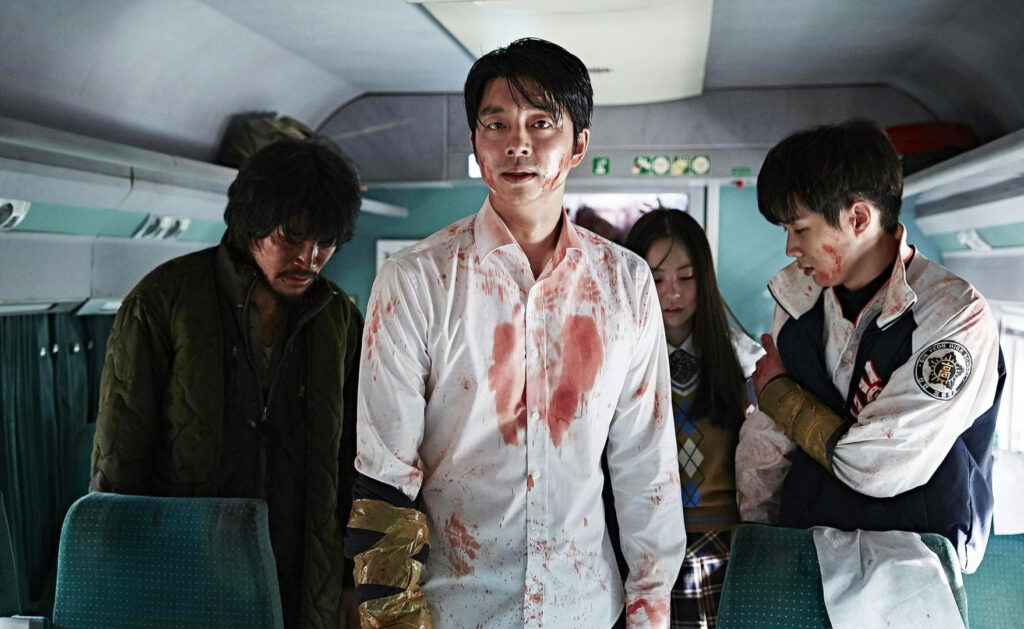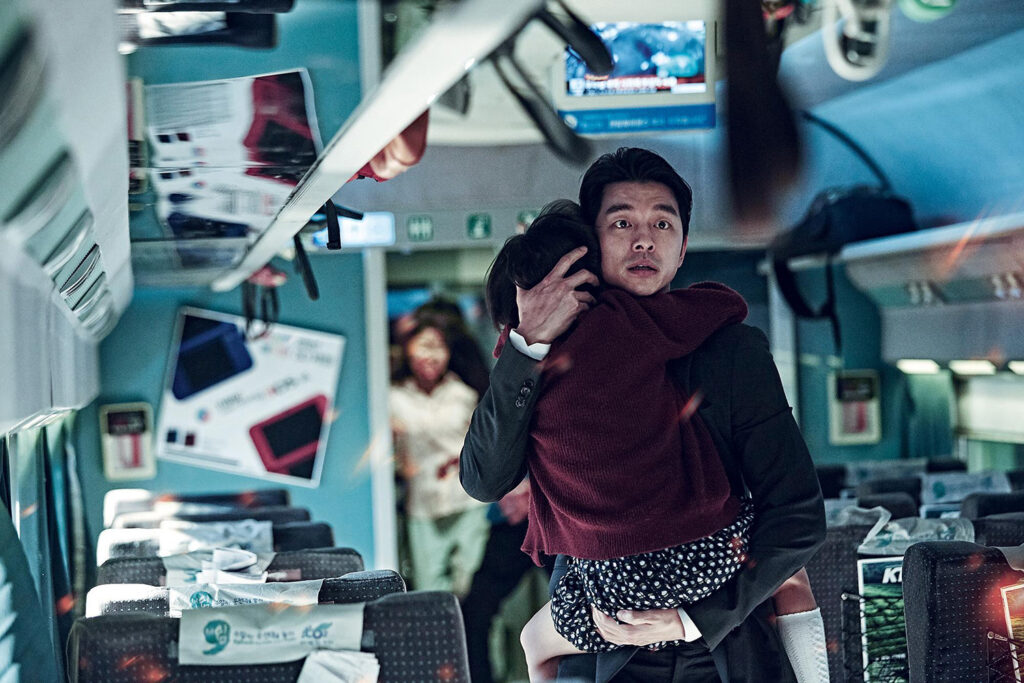When melding action and horror, the results are often thrilling but hollow affairs that fail to sustain a genuine sense of threat and sometimes even any emotional engagement at all. This is especially the case for fast-paced zombie films, in which characters tend to either exist as disposable fodder for the undead hordes or cheapen the stakes as action-hero archetypes clad in plot armour. “Train to Busan” (2016) is a triumphant exception to this trend, boasting well-written characters that feel alive, as well as jaw-dropping sequences that will have you at the edge of your seat.
Divorced dad Seok-woo (Yoo Gong) is completely consumed by his white-collar job as a hedge fund manager, to the point that he has become emotionally distant and out of touch with his daughter Soo-an (Su-an Kim). Primarily cared for by her grandmother, Soo-an appears to have given up on her father as a constant in her life and conceded to his work as being his utmost priority. When Soo-an pleads to be able to spend her birthday with her mother, Seok-woo reluctantly obliges and the two embark on a trip to her mother’s home in Busan. What should be a simple train ride devolves into a desperate race for survival when a deadly zombie virus ravages the country and finds its way onto the train, ensuing chaos and discord amongst the passengers.
From the second “Train to Busan” departs, it only accumulates momentum. Part of this is down to the nature of the threat. Rather than sluggish, decaying zombies, the film opts for agile, fresh, and feral hordes of the infected with a kinetic energy that is barely contained by the enclosed setting of the compact train compartments. The danger is already both immediate and constant but is intensified to a whole other level through director Sang-ho Yoen’s unflinching focus on character every step of the way.
When we first embark on our journey, we are given brief but impactful beats with an assortment of passengers: a kindly pair of elderly sisters, a boisterous band of young baseball players and their spirited cheerleader, a shaken homeless man, and a couple expecting the birth of their first child. The magic of the film lies in this ensemble and our investment in each of their fates alongside our two lead protagonists.

Even more impressive is that there is a subtle stream connecting each dire situation and tense scene in the moments between them. These scenarios are not only a blast to watch, but strike an impact because of what they will mean for each character: how they will respond, and how it will affect their future exchanges. Although this sounds like a given in good storytelling, it is a marvel this remains at the forefront at all times and is never lost in the on-screen mayhem. It makes for engrossing viewing as every set-piece feels pivotal rather than performative.
The strongest testament to “Train to Busan” being a character-driven disaster movie is in the arc of Seok-woo and how it is shaped by his interactions with two other characters, who both mirror and contrast who he is when he first boards the train. Father-to-be Sang-hwa (Dong-seok Ma) presents a more likable and idealised version of our protagonist, being naturally family-oriented and altruistic where Seok-woo is estranged from his daughter and has no qualms about cutting off anyone if it might aid the chances of his and Soo-an’s survival.
Meanwhile, Yon-suk (Eui-sung Kim) is the embodiment these very same self-preserving attitudes that have served both men well in their respective corporate roles. However, with no one to protect and no lingering shred of empathy to call upon, Yon-suk serves as a warning for who Seok-woo may become, should he continue on his present path. The film uses this trinity of characters for some polemical social commentary, showing us how crises can act as litmus tests to expose the worst traits of human nature, which have been nurtured in the everyday struggle to survive under capitalism.
Despite having all the bells and whistles of your typical zombie outing, this deceptively drastic departure from the genre is purposeful in all aspects, from action to dialogue. As a result, every scene feels essential and the audience never lose sight of the stakes which are built so earnestly. The level of investment that is achieved makes every scene emotionally- involving in this white-knuckle ride that will leave you exhausted by its end. Mastering both substance and spectacle, “Train to Busan” is everything an action-horror film should be.


